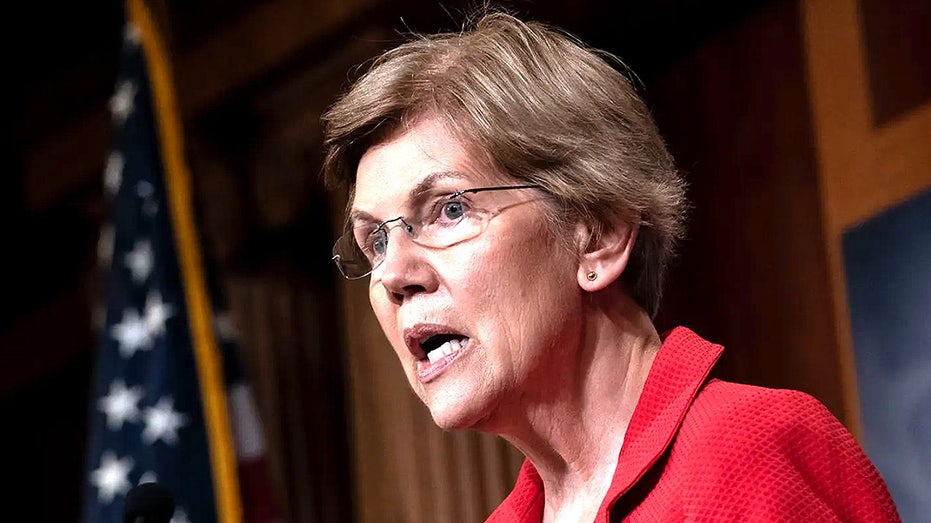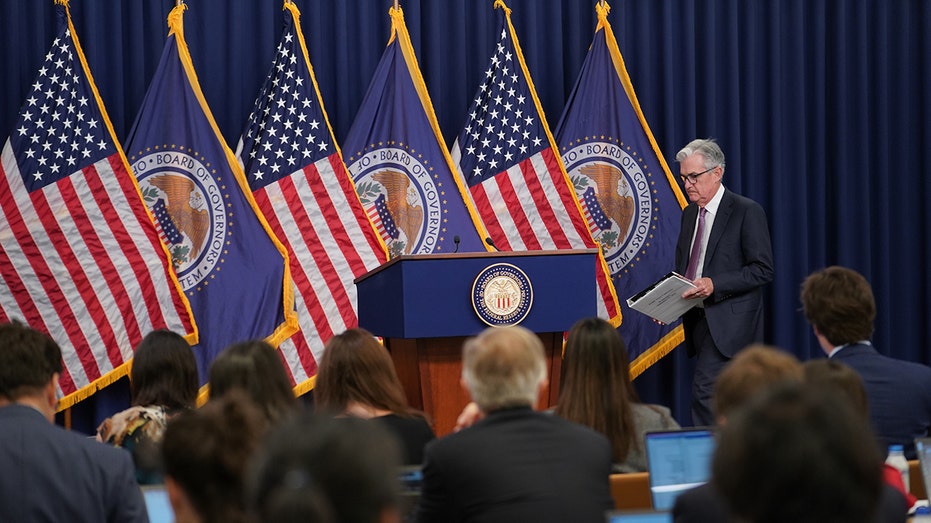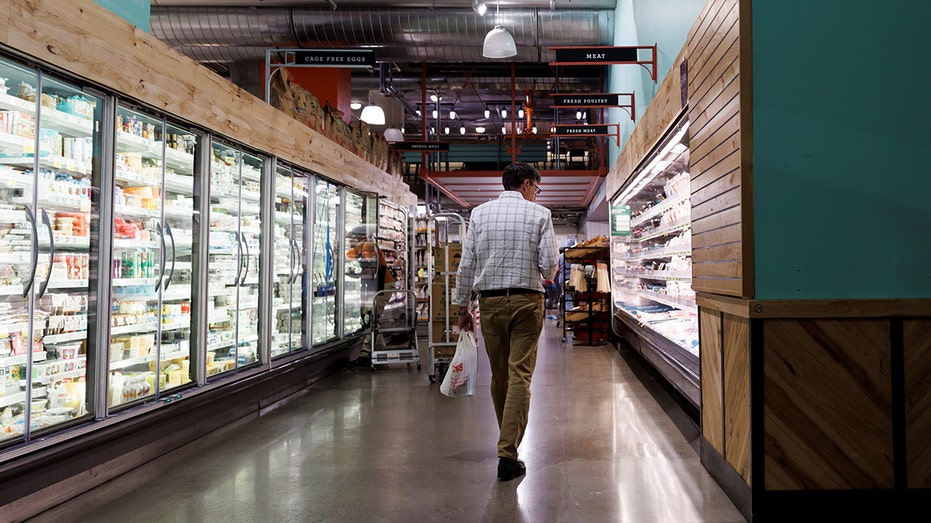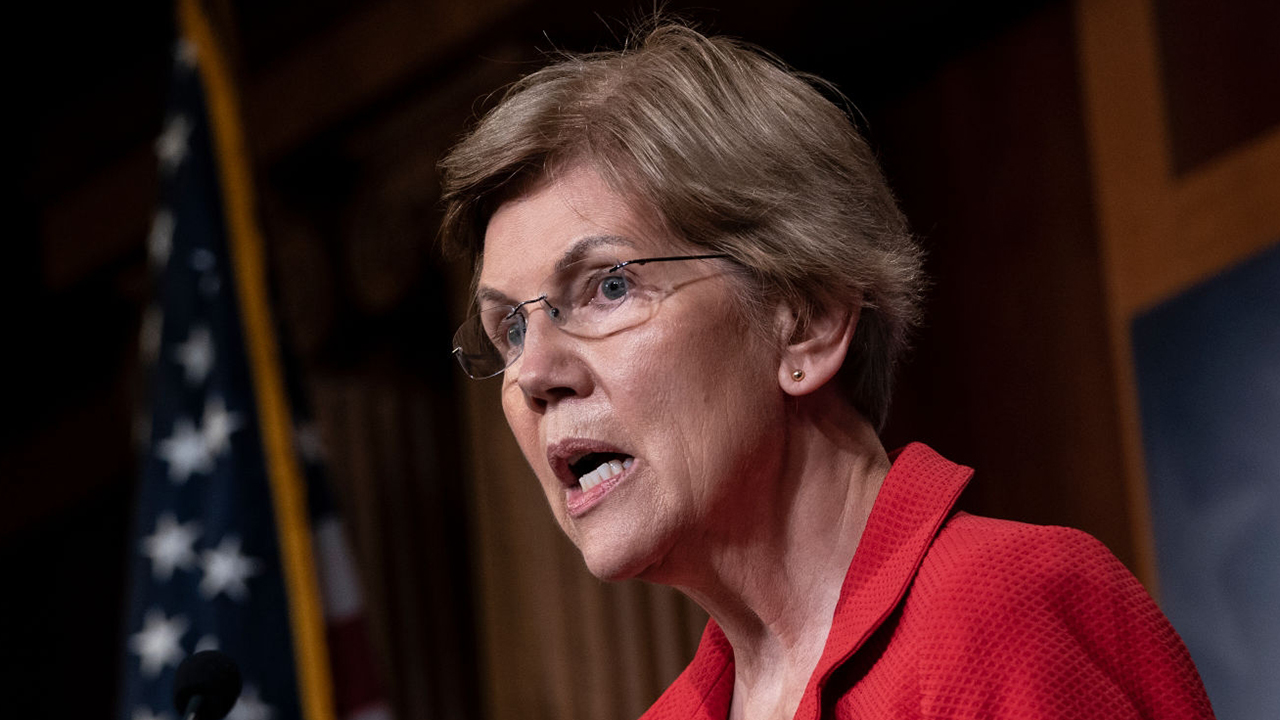Democrats slam 'dangerous' Fed rate hikes, warning of widespread job losses
Fed acting with 'disregard' for American workers' lives, Democrats say
Fed should be ‘very careful’ to ‘not signal’ a future move that could create market ‘volatility’: Thomas Hoenig
Former Kansas City Federal Reserve President and CEO Thomas Hoenig on the Fed’s November meeting and how the bank will address inflation and interest rates.
A coalition of Democratic lawmakers on Tuesday raised concerns about the Federal Reserve's aggressive interest rate hike campaign, warning of impending job losses as a result of the tighter monetary policy.
In a letter addressed to Fed Chairman Jerome Powell, 10 Democrats cautioned the U.S. central bank about potential consequences for the labor market as policymakers try to slow the economy and crush runaway inflation that is still hovering near a 40-year high.
"We are writing to express concern and request additional information about the implications of the Federal Reserve’s (Fed’s) most recent economic projections, its intention to continue raising interest rates at an alarming pace, and your disturbing warning to American families that they should expect ‘pain’ over the coming months," the lawmakers said in the letter.
It was signed by Sens. Elizabeth Warren, D-Mass., Bernie Sanders, I-Vt., Sheldon Whitehouse, D-R.I., and Jeff Merkley, D-Ore., along with Reps. Rashida Tlaib, D-Mich., Katie Porter, D-Calif., Madeleine Dean, D-Penn., Jesús García, D-Ill., Stephen Lynch, D-Mass., and Sylvia Garcia, D-Texas.
SEVERE RECESSION NEEDED TO COOL INFLATION, BANK OF AMERICA ANALYSTS SAY

Sen. Elizabeth Warren (D-MA) speaks during a news conference concerning the extension of eviction protections in the next coronavirus bill, at the U.S. Capitol on July 22, 2020 in Washington, DC. (Photo by Drew Angerer/Getty Images / Getty Images)
Fed policymakers have already approved five consecutive rate hikes, including three back-to-back 75-basis-point increases, and have shown no signs of slowing down. At their latest meeting in September, officials laid out an aggressive rate-hike trajectory that would put the federal funds target rate well into restrictive territory by the end of the year.
The central bankers are expected to approve a fourth straight 75-basis-point increase at the conclusion of their two-day meeting on Wednesday.
Powell has already conceded that that higher rates could "give rise to increases in unemployment," and has stressed that it's imperative the central bank rein in inflation, even if it's at the cost of higher unemployment.
"We think we need to have softer labor market conditions," Powell told reporters in September. "And if we want to set ourselves up really light the way to another period of a very strong labor market, we have got to get inflation behind us. I wish there were a painless way to do that. There isn't."
Updated projections from the Fed's meeting showed unemployment rising to 4.4% by the end of next year, up from the current rate of 3.7%. That is significantly higher than June when policymakers saw the jobless rate inching up to 3.7%.
INFLATION GAUGE CLOSELY WATCHED BY THE FED SURGES AGAIN IN SEPTEMBER
That could mean roughly 1 million Americans lose their jobs between now and the end of 2023. Other analyses — including one from Deutsche Bank — show unemployment climbing as high as 6% as the result of the Fed's rate hikes.

Jerome Powell, chairman of the U.S. Federal Reserve, arrives to speak during a news conference following a Federal Open Market Committee (FOMC) meeting in Washington, D.C., US, on Wednesday, Sept 21, 2022. (Photographer: Sarah Silbiger/Bloomberg via Getty Images / Getty Images)
The Democrats accused the Fed, and Powell, of acting with "an apparent disregard for the livelihoods of millions of working Americans."
"We are deeply concerned that your interest rate hikes risk slowing the economy to a crawl while failing to slow rising prices that continue to harm families," they wrote.
For months, the labor market has remained one of the few bright spots in the economy, with the economy adding more than 2 million jobs over the first half of the year. Additionally, the government reported on Tuesday that job openings climbed to 10.7 million — meaning there are roughly two available jobs per worker.
However, there are signs that the labor market is starting to weaken, with a plethora of companies, including Alphabet's Google, Walmart, Apple, Meta and Microsoft, announcing hiring freezes or layoffs.
Hiking interest rates tends to create higher rates on consumer and business loans, which slows the economy by forcing employers to cut back on spending.

A customer shops at a supermarket in Washington, D.C., the United States, on July 13, 2022. ((Photo by Ting Shen/Xinhua via Getty Images) / Getty Images)
Economists widely agree the risks of a recession climbed considerably this year and that avoiding a downturn in the near future will be increasingly difficult as the Fed tightens monetary policy.
CLICK HERE TO READ MORE ON FOX BUSINESS
Powell himself seemingly acknowledged in September that a "soft landing," the sweet spot between curbing inflation without crushing growth, is looking increasingly unlikely.
"The chances of a soft landing are likely to diminish to the extent that policy needs to be more restrictive, or restrictive for longer," Powell said. "Nonetheless, we’re committed to getting inflation back down to 2%. We think a failure to restore price stability would mean far greater pain."





















